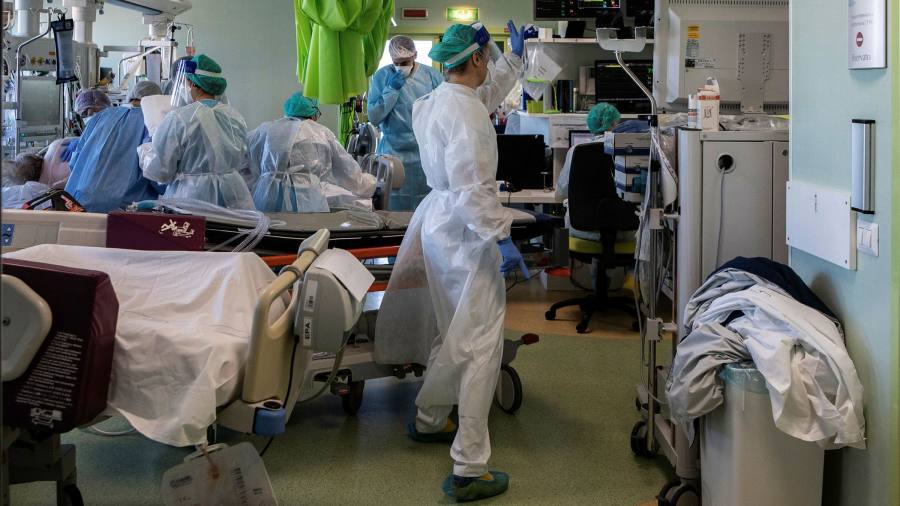[ad_1]
Camillo Cavour, the Piedmontese statesman who helped to found modern Italy, said in 1850: “Reforms accomplished in time, instead of weakening authority, strengthen it.†Mario Draghi, Italy’s new prime minister, quoted Cavour’s observation as he set out a reform-rich agenda on Wednesday to tackle his country’s health and economic emergency. Draghi will need all Cavour’s courage and leadership skills, as well as a high sense of responsibility on the part of Italy’s political classes, if he is to overcome a crisis which he correctly described as the most severe since the second world war.
Fortunately, no person is better equipped for this task than the former European Central Bank president. In temperament, experience and knowledge of the obstacles that have hindered Italian reform for decades, he is the right man for the job. Because of the respect in which he is held on the European stage, he may improve the EU’s handling of the pandemic and its economic fallout. However, it will be vital for Italy that Draghi serves at least two years in the premiership, up to the next scheduled elections in 2023, and does not move next year to the prestigious but less important post of head of state.
In his speech to Italy’s Senate, parliament’s upper house, Draghi stated that his government’s priority is to roll out a fast, efficient national vaccination programme. To that end, he promised to mobilise the armed forces, civilian volunteers and the civil protection units that handle natural and man-made disasters. Organising mass vaccinations has been the weakest spot of the EU’s pandemic crisis management. Draghi knows that unless this problem receives an urgent solution, popular Italian Euroscepticism, waning as the Mediterranean refugee and migrant crisis receded from sight, may return with a vengeance.
As this example suggests, the success of Draghi’s government will depend partly on the EU’s getting its act together. However, Italy’s post-pandemic economic revival will be tied more closely to decisions taken in Rome and their effective implementation across the country. The central question is how to make best use of the €210bn available to Italy under the EU’s loans and grants recovery plan.
Draghi’s speech touched the right notes, focusing on improvements to the public administration, judiciary and education system as well as on digitalisation of the economy, business innovation and renewable energy. Crucially, he identified a need to close salary gaps and strengthen the welfare system, so as to bring more women into the labour force. He also promised measures to improve training and career prospects for Italy’s younger generation — an essential reform, given that large numbers of Italy’s most talented people have left to seek their fortunes abroad over the last 20 years.
Some EU governments worry about Italy’s colossal public debt, estimated at almost 160 per cent of gross domestic product. But the underlying issues are a chronic lack of economic growth, low productivity and insufficient domestic competition, problems connected to the Italian state’s instinct to protect companies that underperform but enjoy political protection. Draghi hinted at changes to come, warning that some forms of economic activity “will have to change, even radicallyâ€.
Draghi’s reforms are a once-in-a-generation opportunity to lay the ground for a much improved future for Italy. It is imperative that Italy’s quarrelsome politicians should support the premier, not paralyse him as they manoeuvre for advantage ahead of the next elections. If they fail in their duty, Italy and the EU risk paying a heavy price.
[ad_2]
Source link





